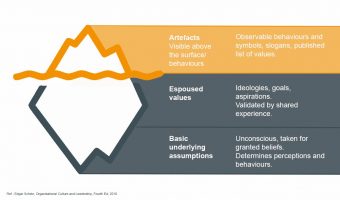News from in & around
The Clubhouse
Stop the stress, keep the focus
What’s your biggest hurdle to success? Funding, employees, logistics? No, it’s probably more personal than that…

We need to develop our emotional intelligence in order to succeed. From focusing on ourselves and our intuition to assessing objectively what’s going on around us, we need to bring our attention to the task. Stress – something many of us deal with daily – is our number one obstacle to being at our most efficient, alert self. Stress stops us from achieving our goals; we feel overwhelmed, time poor, mentally frazzled,
forgetful and distracted.
Stress isn’t always bad; short-term stress raises cortisol levels (the so-called stress hormone) for short periods and can jumpstart our adrenalin and motivate us to perform more efficiently. But chronic stress floods our nervous system with cortisol and adrenaline that hijack crucial cognitive functions, such as focus and memory. Long-term stress can lead to prolonged increases in cortisol, which can be toxic to the brain. When we can’t focus, this can lead to us feeling even more stressed and so the cycle begins. Many people don’t notice when we’re in this spiral until we are totally overwhelmed and at breaking point.
Research by Kandi Wiens, coach and organisational change consultant, has discovered why some people get burned out and others don’t. It’s down to their emotional intelligence, specifically self-awareness and self-management, and how they use it to manage their stress and break the cycle. Wiens suggests these ways to start using your self-awareness to notice a few things:
- Why you feel stressed or anxious
Before you can deal with stress, you need to know what’s causing it. Make a list of the sources of your stress. Write down
each thing that’s causing you anxiety. You might categorise items into things you have the ability to change and things
you don’t. Then you will need to figure out how to change your attitude toward them. - How you lose your ability to focus
By paying attention to the patterns that lead to your lack of focus, you can begin to develop your ability to dismiss distractions and stay with your original point of attention. - How you feel when you can’t focus
Does it make you anxious when you can’t recall information when you need it? This may be a clue that you’re more stressed than you may realise, and that your inability to concentrate is causing even more stress.
Once you’ve increased your awareness of what’s causing you stress and how and when you lose your focus, you can use the following strategies to make better choices that keep you focused.
- Do a digital detox
In its 2017 Stress in America survey, The American Psychological Association (APA) found that “constant checkers” – people who check their emails, texts, and social media on a constant basis – experience more stress than those who don’t. Unplugging or limiting your digital access can be great for your mental health. - Rest your brain
Lack of sleep can negatively affect our decisions because it impairs our ability to accurately assess a situation, plan accordingly, and behave appropriately. Commit to the recommended seven to eight hours of sleep each night. - Practice mindfulness
Mindfulness is key to emotional resilience, which is a key contributor in our ability to quickly recover from stress. - Shift your focus to others
Studies (Wiens included) show shifting our focus to others produces physiological effects that calm us. So you can not only take your
mind off of your stress but reap the benefits of knowing you’re doing something meaningful for someone else.
This article was originally featured in The Informer. To read the full magazine, please click here.


